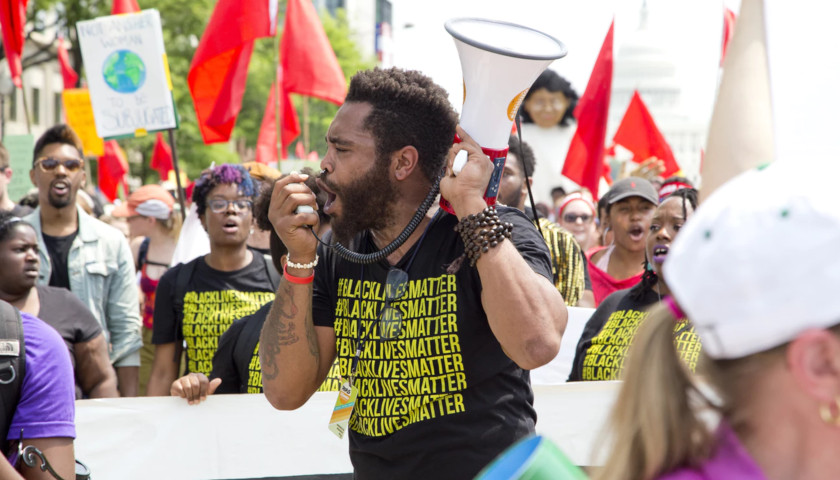by Bethany Blankley
A newly released survey of students at over 500 colleges and universities who belong to Greek-letter fraternities and sororities found that the majority of students don’t feel comfortable publicly disagreeing with their professors on a controversial topic.
“Students who aren’t able to freely express ideas among professors or peers are unlikely to realize the full measure of what higher education has to offer,” Nathan Harden, editor of RealClearEducation, said. “Students are equally underserved by campuses where they don’t feel that their student organizations are treated equally or welcomed on campus. Fostering an environment where students are free to explore a diversity of ideas is one of the chief goals of the university – and this includes the right to form voluntary associations based on shared interests or beliefs.”
RealClearEducation commissioned the opinion research firm Slingshot Strategies to conduct a survey among 4,620 fraternity and sorority members on college campuses. Among those polled were 1,805 fraternity members and 2,815 sorority members from more than 500 colleges and universities in 36 states. Students responded to an online questionnaire between June 1 and Sept. 1, 2020.
All students who participated were members of a fraternity or sorority and were enrolled at a college or university during the spring semester of 2020. They were asked questions in four categories: 1) the impact of COVID-19 on their academic, professional, and personal lives; 2) how they felt their fraternity or sorority is viewed by the broader campus community and treated by administrators; 3) the degree to which their university restricts the self-organization of students into groups of shared interest; and 4) the degree to which they can express political and personal views – particularly, unpopular or controversial ones – freely and honestly.
The fourth question on freedom of speech presented the most “troubling” responses, the report notes.
When asked how they felt about publicly disagreeing with a professor, 60% of respondents said they felt uncomfortable; whereas 60% said they felt comfortable if the discussion was with their peers.
When asked if they felt comfortable expressing their opinion online, 41% said they felt very uncomfortable doing so.
Half of all respondents have felt the need to self-censor, the survey found: 50% of students answered “yes” to the question, “Have you personally ever felt you could not express your opinion on a subject because of how students, a professor, or the administration would respond?”
About 38 percent of respondents said their college’s administration would be more likely to “punish the speaker for making the statement” than to “defend the speaker’s right to express their views.”
“It is interesting to contemplate whether these differences are more a reflection of Gen Z’s particular characteristics and concerns, compared with millennials and older generations, or whether they represent a meaningful change in the culture or climate on college campuses,” the report notes.
The findings are similar to those of a survey conducted by the Foundation for Individual Rights in Education (FIRE) last December. In FIRE’s national survey of 478 higher education institutions, 9 in 10 restrict free speech in some capacity on campus but nearly half maintain policies that “impermissibly restrict online speech.”
The study found that 88% of those surveyed maintain policies that restrict, or could be interpreted to restrict, expression.
Each of the 478 policies analyzed can be found in FIRE’s Spotlight Database. Schools are ranked according to color, with red indicating that the institution has the most restrictive policies, and green, the least. First Amendment protections analyzed include policies related to protest, online speech, harassment and civility.
Among them, 21% of schools received an overall red light rating for maintaining speech codes that both “clearly and substantially” restrict freedom of speech.
More than half of red light-ranked schools are located in the District of Columbia and seven states: Alaska, Delaware, Illinois, Oregon, South Carolina, Vermont, and Wyoming.
Roughly 12% of institutions analyzed, a total of 56, received a green light ranking for having no policies in place that compromise student expression, according to the database.
Yellow light-ranked institutions represent the majority, 65%, which have policies in place that prohibit, or have an impermissible chilling effect on, constitutionally protected speech.
– – –
Bethany Blankley is a contributor to The Center Square.




